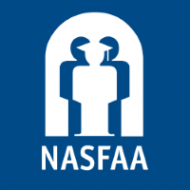Millions of Additional College Students Now Eligible for SNAP Benefits Through Coronavirus Relief

NASFAA
Owen Daugherty, NASFAA Staff Reporter
February 22, 2021
A small provision included in the latest round of federal coronavirus relief aid could have a big impact on the wellbeing of college students across the country.
The federal Supplemental Nutrition Assistance Program (SNAP) was expanded as part of the sweeping relief package to allow college students to more easily access the program, temporarily removing work and eligibility requirements for students — a change that will be in place for the duration of the public health emergency due to the coronavirus.
The provision lifted certain exemptions to the federal criteria for students to be eligible for the program, making it possible for students with an expected family contribution (EFC) of $0 on their financial aid application, or those who are eligible for state or federal work-study to enroll for SNAP under the temporarily expanded eligibility criteria, meaning about 3 million more students will be eligible for assistance, according to an estimate from The Century Foundation.
Previously, if a student attended college at least half-time, in addition to meeting the SNAP income eligibility requirements, they also had to meet at least one additional eligibility requirement, such as participating in work-study, being a primary caregiver for a dependent child, or receiving a benefit under Temporary Assistance for Needy Families (TANF), among others. The expanded eligibility will remain in place until 30 days after the public health emergency ends.
While SNAP is a federal program, the Families First Coronavirus Response Act signed into law in March at the onset of the pandemic gave the U.S. Department of Agriculture the authority to allow states to temporarily modify criteria to make it easier for more families and individuals to continue participating in or apply for SNAP, providing states with much needed flexibilities.
The changes come at a pivotal time, as rates of individuals reporting feeling food insecure rose due to the ongoing pandemic, with nearly one-third of college students saying they have experienced food insecurity since the beginning of the pandemic, according to a recent survey from Chegg.org.








